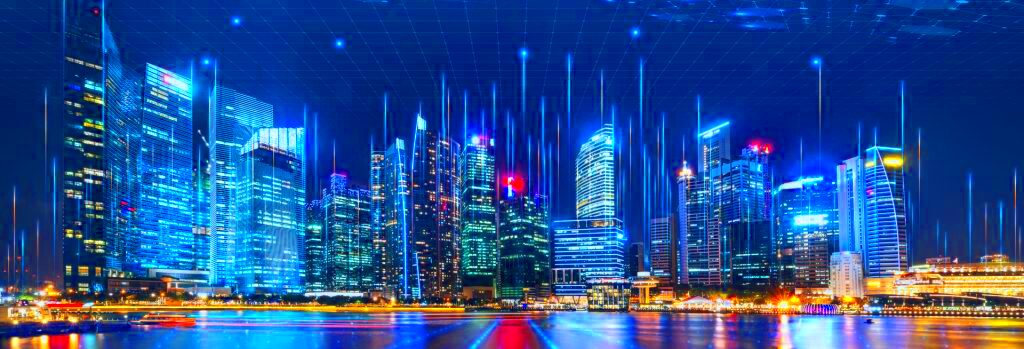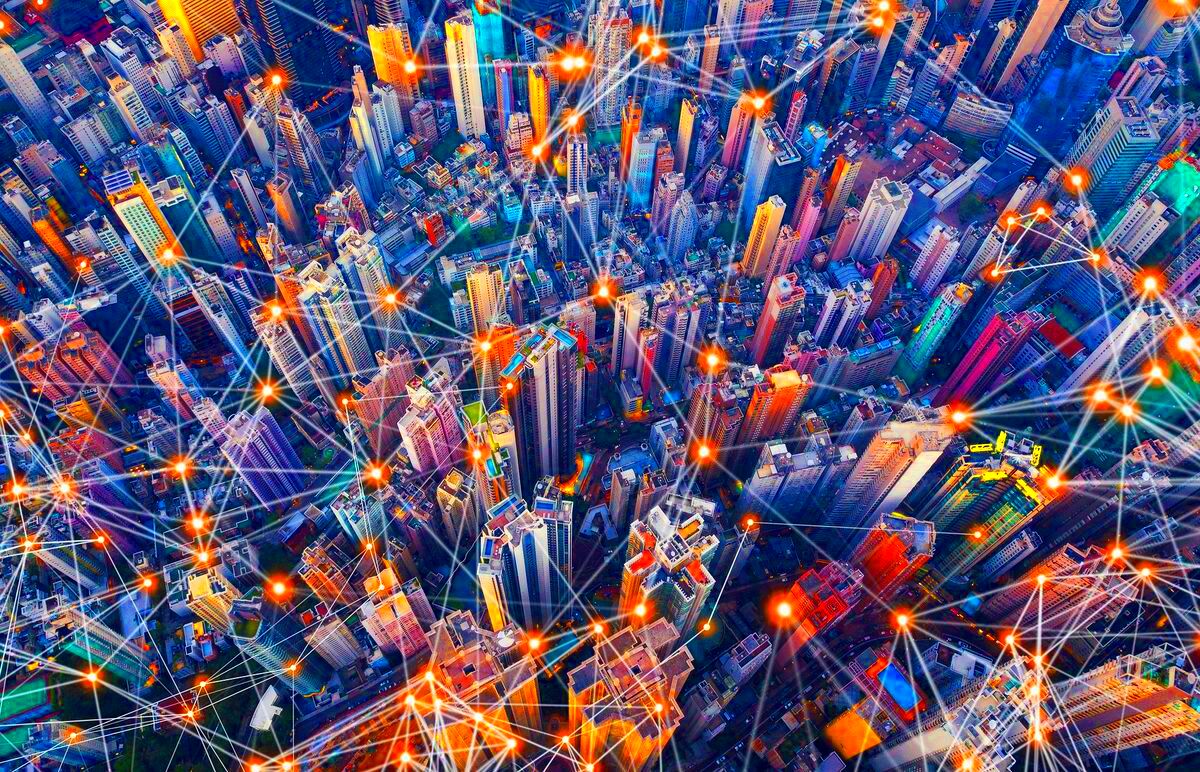The cities that are
technology driven are altering the way we live, work, and connect quickly. Urban towns are becoming more intelligent and effective with the help of advancements in
technology. These cities provide us with insights of tomorrow that would be dominated by sophistication, as seen through better transportation systems or improved public services.
Significance of Technology in Urban Development

The importance of
technology in urban development cannot be overemphasized. It helps cities to become more sustainable, livable and resilient. Some of the main reasons why
technology is important in this regard include:
- Enhanced Infrastructure: Smart infrastructure improves the efficiency of services like water, energy, and waste management.
- Improved Transportation: Technology enables better traffic management and the rise of public transport solutions such as electric buses and bike-sharing programs.
- Data-Driven Decisions: City planners can analyze data to make informed decisions, optimizing resource allocation and urban planning.
- Community Engagement: Technology fosters a sense of community by connecting residents through apps and platforms that encourage civic participation.
In the end, bringing
technology into city planning makes an environment that is more in line with what the people want.
Examples of Innovative Cities in the USA
There are a number of towns in the USA that are at the forefront of integrating
technology into their societies. Some notable examples include:
| City | Innovative Features |
|---|
| San Francisco, California | Home to numerous tech startups, San Francisco has implemented smart public transport systems and advanced waste management solutions. |
| Boston, Massachusetts | Boston uses data analytics to improve city services and offers a robust bike-sharing program for eco-friendly transportation. |
| Seattle, Washington | Seattle integrates technology into public safety and transportation, with initiatives like smart traffic lights and urban Wi-Fi. |
| Austin, Texas | Austin fosters innovation through tech incubators and hosts events that encourage community engagement and technology exploration. |
This cities are role models for other cities on how
technology can be used to improve urban life.
How Technology Enhances Daily Life in Urban Areas
In the cities, technology changes the everyday life in a way that is more comfortable, effective and interesting. Whatever time it is, whatever you are doing at any time of day or night; technology makes life easier. Here is how it does that:
- Smart Homes: With the rise of smart home technology, residents can control their lighting, heating, and security systems right from their smartphones. Imagine adjusting your thermostat before you even step inside your home!
- Public Transportation: Apps like Google Maps and Citymapper offer real-time updates on public transport schedules, helping you plan your journey efficiently.
- Health Services: Telehealth services allow residents to consult with doctors from the comfort of their homes, making healthcare more accessible.
- Community Apps: Local apps encourage residents to engage with their neighborhoods, find events, and report issues like potholes or broken streetlights.
Not just making life easier, these new developments help develop community ties so that people feel closer together and are able to relate better despite distance as well as time differences between them all; thus enhancing their enjoyment of living together in cities.
Challenges Faced by Technology-Driven Cities
Despite the many advantages that come with technology, it also poses challenges to cities. Below are some issues that are at the forefront:
- Digital Divide: Not everyone has equal access to technology. This divide can leave some communities behind, leading to inequality in services and opportunities.
- Cybersecurity Threats: As cities become more connected, the risk of cyber attacks increases. Protecting sensitive data is crucial to maintain public trust.
- Infrastructure Costs: Upgrading infrastructure to support new technologies requires significant investment, which can strain city budgets.
- Privacy Concerns: With increased data collection comes concerns about how that data is used and who has access to it. Residents may feel uneasy about their privacy.
Appropriately tackling these problems will call for meticulous organization as well as cooperation between municipal leaders, technology businesses and citizens.
Future Trends in Urban Technology
It is high time to quit making vague predictions about the future of urban technology, especially with so many exciting trends bubbling beneath the surface waiting to be poured out. Below are some that you should keep an eye on:
- Smart Transportation: We can expect to see more autonomous vehicles and electric public transport options, reducing emissions and traffic congestion.
- Green Technologies: Urban areas will increasingly adopt sustainable practices, such as solar panels and energy-efficient buildings, to promote environmental health.
- AI Integration: Artificial intelligence will play a bigger role in city management, from optimizing traffic flows to predicting maintenance needs.
FAQ
Q: How is technology changing urban living?
A: Technology is enhancing urban living by improving infrastructure, transportation, and public services. It creates smarter homes, enables real-time updates for public transit, and facilitates better community engagement.
Q: What are some examples of technology-driven cities in the USA?
A: Notable examples include San Francisco (smart transport and waste management), Boston (data analytics for city services), Seattle (smart traffic lights and urban Wi-Fi), and Austin (tech incubators and community events).
Q: What challenges do technology-driven cities face?
A: Major challenges include the digital divide, cybersecurity threats, high infrastructure costs, and privacy concerns related to data collection and usage.
Q: What future trends should we expect in urban technology?
A: Future trends include the rise of smart transportation (like autonomous vehicles), increased adoption of green technologies, and greater integration of artificial intelligence in city management.
Q: How does technology foster community engagement?
A: Technology fosters community engagement by providing platforms and apps that encourage residents to participate in local events, report issues, and connect with their neighborhoods.
Conclusion
Incorporating technology into urban development is reshaping our cities to be more sustainable, livable, and efficient. While cities like San Francisco, Boston, Seattle, and Austin showcase the benefits of innovative technologies, they also highlight the challenges that come with this transformation.Addressing issues such as the digital divide, cybersecurity, and privacy concerns is essential for creating equitable urban environments. As we look ahead, trends like smart transportation, green technologies, and AI integration promise to further enhance urban living, ensuring cities are not just technologically advanced but also resilient and community-focused.Embracing this evolution will require collaboration among city leaders, tech innovators, and residents, ultimately paving the way for a more connected and vibrant urban future.
 The importance of technology in urban development cannot be overemphasized. It helps cities to become more sustainable, livable and resilient. Some of the main reasons why technology is important in this regard include:
The importance of technology in urban development cannot be overemphasized. It helps cities to become more sustainable, livable and resilient. Some of the main reasons why technology is important in this regard include:
 admin
admin








